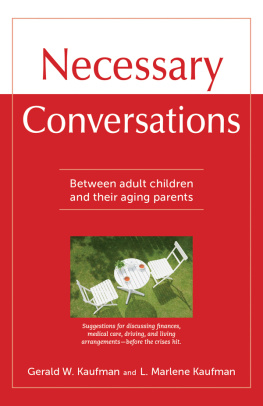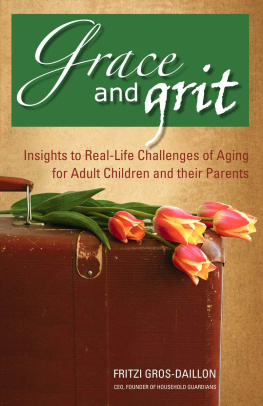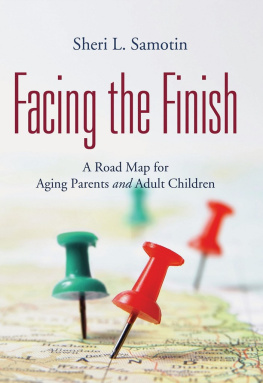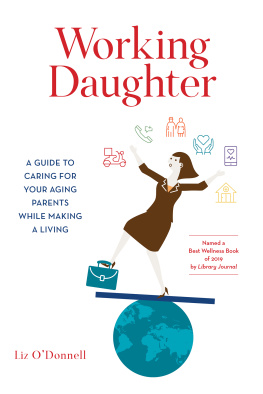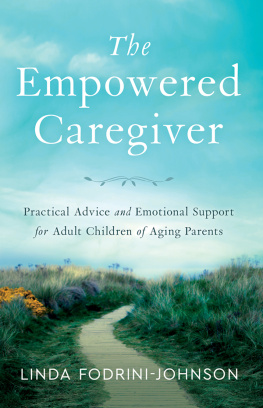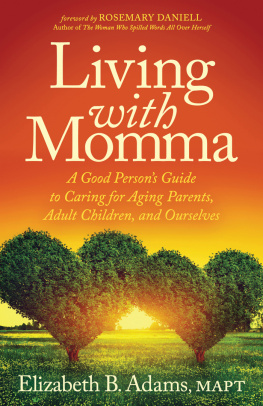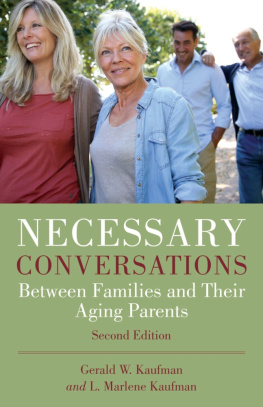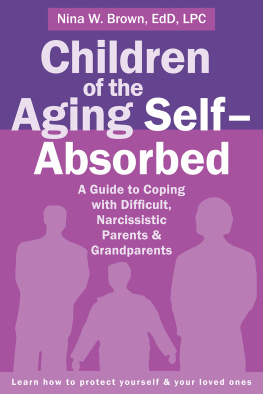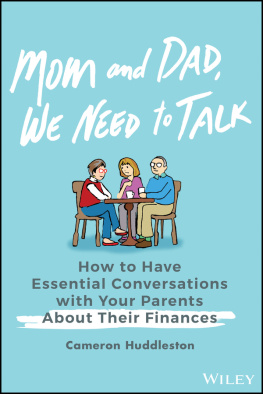Copyright 2014 by Gerald W. Kaufman
All rights reserved. No part of this book may be reproduced in any manner without the express written consent of the publisher, except in the case of brief excerpts in critical reviews or articles. All inquiries should be addressed to Good Books, 307 West 36th Street, 11th Floor, New York, NY 10018.
Good Books books may be purchased in bulk at special discounts for sales promotion, corporate gifts, fund-raising, or educational purposes. Special editions can also be created to specifications. For details, contact the Special Sales Department, Good Books, 307 West 36th Street, 11th Floor, New York, NY 10018 or info@skyhorsepublishing.com.
Good Books in an imprint of Skyhorse Publishing, Inc., a Delaware corporation.
Visit our website at www.goodbooks.com.
10 9 8 7 6 5 4 3 2 1
Library of Congress Cataloging-in-Publication Data is available on file.
Design by Cliff Snyder
Cover photograph Bloomimage/Corbis
Print ISBN: 978-1-56148-798-1
Ebook ISBN: 978-1-68099-008-9
Printed in the United States of America
Publishers Cataloging-in-Publication Data
Kaufman, Gerald W.
Necessary conversations -- between adult children and their aging parents / by Gerald W. Kaufman and L. Marlene Kaufman.
p. cm.
ISBN 978-1-56148-798-1
1. Adult children of aging parents. 2. Adult children of aging parents --Family relationships. 3. Aging parents --Care. 4. Aging. 5. Parent-child relationships. I. Kaufman, L. Marlene - II. Title.
HQ1063.6 K38 2013
646.7/8 --dc23 2013937633
This book is dedicated to all of you who have shared so richly with us from your family stories. We learned much from the partnerships you have created. Thanks for letting us listen in on your conversations.
Preface
The idea for this book came from a seminar that we presented with our daughter Anne and her husband, Todd. We had been asked to talk about the conversations parents and their adult children need to have about aging. At the time of the seminar, we were in our late sixties, and Anne and Todd were in their early forties. As we gathered material for the seminar, it became clear that this was a timely subject for many people. The seminar was well attended, and the responses from it revealed an intense interest in the subject.
Besides the seminar, the book is also drawn from our nearly forty years as counselors. Many of the families with whom we worked faced significant conflict with parents in their senior years. Few had made plans or had even talked together about the future. When crises arose, the families were unprepared.
Writing this book has been very rewarding. When friends and colleagues learned what we were doing, many offered stories from their own lives, or they referred us to others with experiences to share. There are many more stories waiting to be told; they can be a part of the ongoing conversation.
As we gathered these stories, we visited many people in their homes. We appreciated their openness and warmth. It was especially gratifying to experience their spirit of humility and wish to make sure all of their family members were given the credit they deserve. Some allowed us to use their names, while, for a variety of reasons, others did not. However, every story is real in the important details. We are indebted to those who were a part of this process.
The community in which we have lived for more than three decades, Lancaster County, Pennsylvania, has also shaped our ideas. A blend of urban and rural areas with more than half a million residents, it sits on the western edge of the East Coast megalopolis, about a ninety-minute drive from Philadelphia and Baltimore.
Perhaps the most important influence in our lives is the Mennonite community of which we are members. We belong to a more progressive branch of the Mennonite church, but we are surrounded by many Amish and Old Order Mennonites, who demonstrate the importance of family ties and simple living. Our views are shaped by these relationships. Many of the stories in the book are from people who are part of these communities, but we have listened to and included a diversity of voices, all of which have strengthened our understanding of the relationship between parents and their adult children.
When to begin these conversations?
We suggest that the retirement of parents is a convenient marker for the parent-adult child conversations about aging to begin. For most families, that means the parents will be in their sixties, and their adult children will be in midlife.
This will take effort. Adult children may live far away and be very busy with their own lives. Since many families get together during holidays or for other occasions, we propose that you use some of that time to discuss your shared future.
For readers who have no children, we suggest that you petition a niece, nephew, or some trusted younger person to play the role of coach and supporter. If you are deep into your retirement years, we encourage you to begin this relationship soon. We believe that the conversations which we describe in the book can be useful to everyone regardless of their situation.
We also recommend that every congregation or house of worship designate someone to provide counsel and support to its aging membersespecially those with no adult children. For readers who have no faith community, we suggest that you seek counsel from friends and professionals who work with seniors. No person or couple should age alone.
It is our strong belief that families need to begin these discussions early and continue talking until the death of their parents. Far too many families wait until circumstances force them to talk, and then they have to make decisions under pressure, which often leads to conflict that can continue for years.
We encourage families to find new ways to connect with each other. Many families have disconnected from each other emotionally. This powerful shift in the culture has exacted a high toll on families. We believe that there are better ways to face the later years of our lives. Thats what this conversation is all about.
It is our hope that this book can help families work together to make important decisions about aging. We hope it will encourage adult children to support their parents throughout their senior years.
One note: We have written most of this book in the voice of the parents. The exception is chapter 4, which we have written in the voice of the adult children.
To all the people at Good Books, a big thanks for believing in this project. We are especially grateful to Phyllis, Merle, and Kate for their advice, editing, and optimism. They helped to give shape to ideas that need to be a part of the conversations as we age.
And now we give thanks to our adult childrenBrent and his wife, Cheryl; Nate and his wife, Cathy: Anne and her husband, Todd; and Nina and her husband, Craig, for joining us in our process of aging. Your support, advice, and courage to help us face ourselves and our future have enabled us to better understand what this partnership is all about. Lets keep the conversations going.
Gerald W. Kaufman and L. Marlene Kaufman
CHAPTER 1
Beginning the Conversations
MOM: You know, last night when we went out to dinner and they asked if we wanted the senior discount, I just about said no. Really, were you ready for that? Seniors! Were not old yet. Why do they have to rush the calendar? I want to stay young as long as I can.

